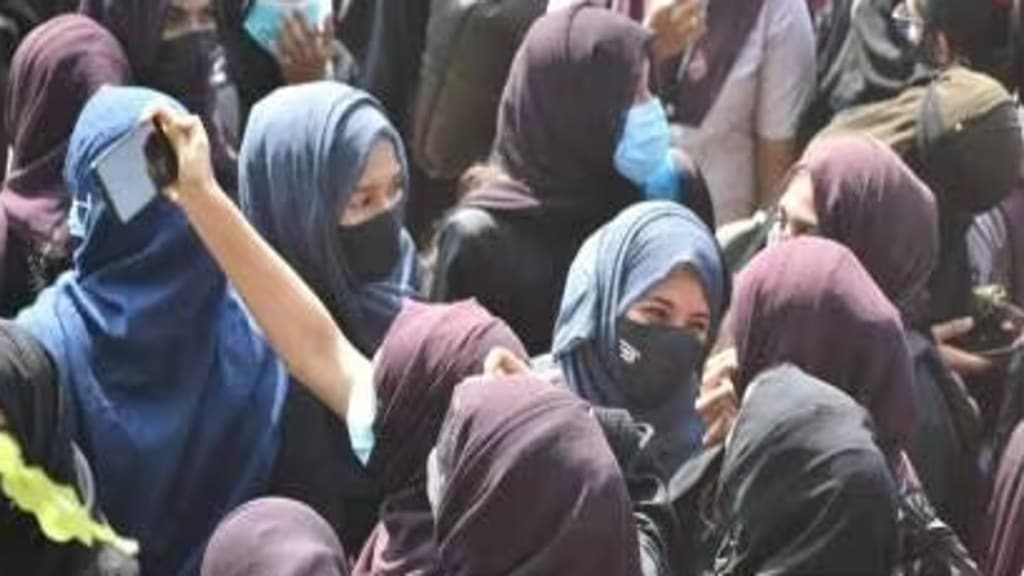Muslim Personal Law Board on Sunday announced that it will challenge the Supreme Court’s recent judgement which allows divorced muslim women to seek maintenance even after completing the ‘Iddat’ period. Further, the board is also planning to initiate legal proceedings to challenge the recently executed Uniform Civil Code (UCC) by the Uttarakhand Government. These announcements were made during the board’s working committee meeting held in Delhi, reported the ANI.
On July 10, the Supreme Court ruled that Section 125 of the Code of Criminal Procedure (CrPC) applies to all married women, including Muslim women, allowing them to claim maintenance from their husbands under these provisions.
What is the Iddat period?
As per the Islamic sharia law, ‘iddah or iddat is a mandatory waiting period for a woman after her husband’s death or a divorce, during which she cannot remarry. This period ensures clarity of any child’s lineage and serves as a time for mourning.
The duration of ‘iddah varies: three lunar months (about 89 days) for a divorced woman, unless the marriage was unconsummated, in which case ‘iddah is not required; and four lunar months and ten days (around 128 days) for a widow. If the woman is pregnant, ‘iddah lasts until the birth of the child.
Islamic scholars view ‘iddah as a balance between mourning and protecting the widow from societal scrutiny for remarrying too soon. It also confirms the woman’s pregnancy status, as the period is roughly half the duration of a typical pregnancy.
As per the Islamic laws, during the iddah period man her husband is primarily responsible to take care of her and maintain her expenses. But after completing the iddat period divorced women cannot seek any kind of maintenance from her ex-husband and she is free to choose and live life at her own choice. In a recent verdict, SC exactly reversed the process and allowed divorced muslim women to seek maintenance after completing the iddat period.
What decisions have been taken in the board’s working committee?
Syed Qasim Rasool Ilyas, spokesperson for the board, announced that eight resolutions were approved in their recent meeting, according to an ANI report.
“The first resolution addressed the recent Supreme Court judgment, which conflicts with Sharia law. The resolution asserts that marriage in Islam is a sacred bond, and Islam strives to prevent divorce. The Supreme Court’s decision, although claiming to protect women’s interests, may create issues for women in the context of marriage. If a man must provide maintenance even after divorce, it may deter him from seeking a divorce, leading to potential bitterness in the relationship. We will consult with our legal committee on how to challenge this decision,” Ilyas stated.
The Supreme Court also highlighted the need for Indian men to acknowledge the contributions of ‘homemakers’ and ensure financial support through joint accounts and ATMs. Justices BV Nagarathna and Augustine George Masih ruled that Section 125 CrPC, which grants wives the right to maintenance, applies to all women, including divorced Muslim women.
Regarding the Uniform Civil Code (UCC), Syed Qasim Ilyas mentioned that their legal committee is preparing to challenge the UCC law in Uttarakhand.
“Diversity is a fundamental aspect of our country, protected by our Constitution. The UCC aims to undermine this diversity, posing a threat to constitutional and religious freedoms. The UCC enacted in Uttarakhand is problematic for many, and we have decided to challenge it legally,” he explained.
Ilyas also addressed religious disputes in the country, referencing the Worship Places Act of 1991.
“Prior to the Babri Masjid incident, the Worship Places Act of 1991 was in place to prevent religious disputes. Unfortunately, new disputes continue to arise. We are urging the Supreme Court to uphold this act and not entertain new disputes,” he said.
He expressed concern over the rise in mob lynching cases.
“Despite the recent election results reflecting a rejection of hatred, mob lynching cases persist, with 11-12 incidents occurring post-election. This undermines the rule of law. Criminals should be punished by the legal system, not by mobs,” he stated.
On the Palestine-Israel conflict, Ilyas urged the Indian government to sever strategic ties with Israel and pressure for a ceasefire.
“The Palestine issue is significant. India has traditionally supported the two-nation theory and condemned Israel’s illegal occupation. The current conflict has resulted in thousands of deaths, and the international community’s support for Israel is troubling. We urge the government to end strategic relations with Israel and push for peace, similar to its stance in the Russia-Ukraine war,” he concluded.


